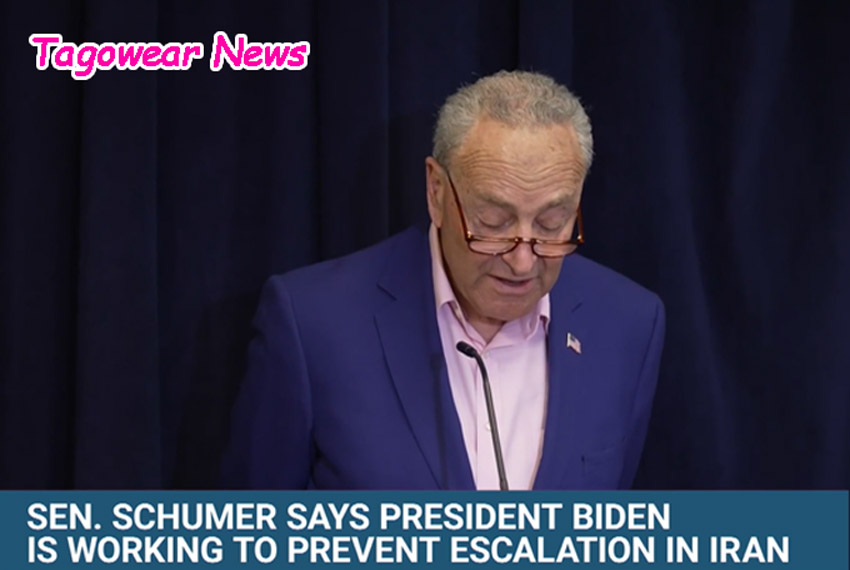As tensions continue to simmer in the Middle East, Senate Majority Leader Chuck Schumer has made it clear that President Joe Biden and his administration are actively engaged in efforts to prevent further escalation, particularly regarding the situation in Iran.
Against a backdrop of longstanding geopolitical complexities and recent developments, such as the U.S. withdrawal from the Iran nuclear deal under the previous administration, the need for diplomatic engagement and de-escalation measures has become increasingly urgent.
Senator Schumer’s statement underscores the gravity of the situation and the Biden administration’s commitment to pursuing diplomatic avenues to address the challenges posed by Iran’s nuclear program and regional activities. Amidst mounting concerns over Iran’s nuclear ambitions and its support for proxy groups across the region, including in Syria, Lebanon, and Yemen, the importance of dialogue and diplomacy cannot be overstated.
The United States’ relationship with Iran has been fraught with tension for decades, marked by periods of confrontation and intermittent attempts at rapprochement. President Biden’s approach to Iran represents a departure from the unilateralism and brinkmanship of his predecessor, signaling a renewed emphasis on multilateralism and diplomacy. Through engagement with international partners and stakeholders, including European allies and regional actors, the Biden administration seeks to chart a course toward a more stable and sustainable relationship with Iran.
By signaling a willingness to return to the negotiating table and explore avenues for diplomacy, President Biden has sought to de-escalate tensions and address the existential threat posed by Iran’s nuclear ambitions. However, the path forward remains fraught with challenges, including navigating domestic political dynamics in both the United States and Iran, as well as managing the expectations of regional allies and adversaries.
Against this backdrop, Senator Schumer’s affirmation of President Biden’s commitment to preventing escalation in Iran underscores the bipartisan consensus on the importance of diplomacy and dialogue in addressing complex geopolitical challenges. By prioritizing diplomacy over military confrontation, the Biden administration aims to reduce the risk of conflict and create opportunities for constructive engagement with Iran and other stakeholders in the region.
Ultimately, the road to de-escalation and conflict resolution in the Middle East is fraught with uncertainty and obstacles. However, by demonstrating a commitment to diplomacy, engagement, and multilateral cooperation, President Biden and his team are laying the groundwork for a more stable and peaceful future in the region. As tensions persist and dynamics evolve, the importance of sustained diplomatic efforts and dialogue cannot be overstated in navigating the complex challenges of the Middle East.
SEN SCHUMER SAYS PRESIDENT BIDEN IS WORKING TO PREVENT ESCALATION IN IRAN pic.twitter.com/NtdP1XX8nj
— America History (@AmericaHistory8) April 8, 2024
Written by TAGOWEAR NEWS

